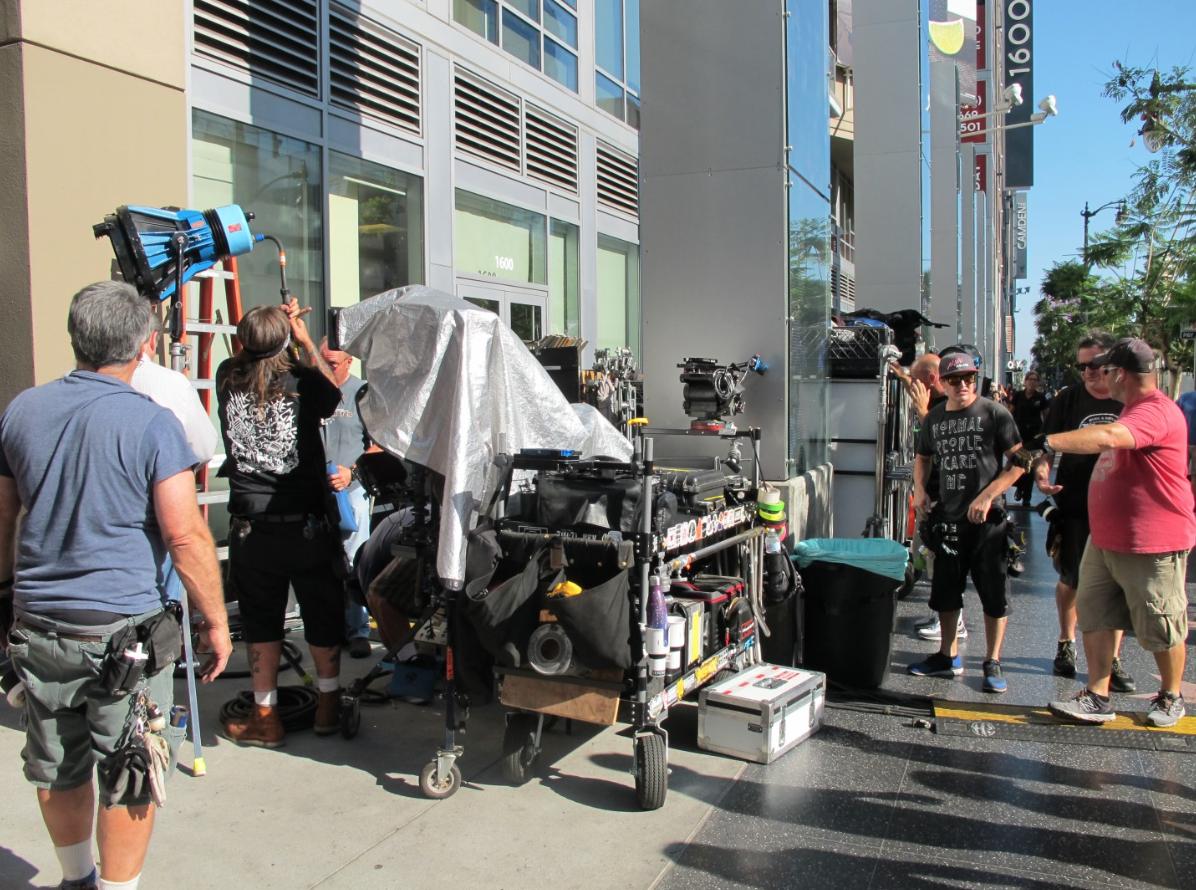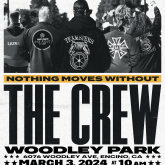
Published by FilmLA:
On-location filming in the Greater Los Angeles region achieved its second best year on record in 2017, according to data released today by FilmL.A. Last year on-location filming decreased 3.4 percent (from 39,627 Shoot Days to 38,284 Shoot Days) for a second-place annual finish compared to 2016. Meanwhile, according to new data, L.A. area sound stage occupancy remains above 92 percent.
“This report confirms what below-the-line-workers across Los Angeles are already experiencing – film and television production is booming,” said Los Angeles Mayor Eric Garcetti. “L.A. is the creative capital of the world – and we’re working hard to keep it that way, because each new production means more good-paying jobs and a healthier economy for the entire region.”
On-Location Production Update*
FilmL.A.’s longest-running reporting effort, focused on production that takes place on-location within its service area, determined that filming levels in 2017 remained high despite finishing below 2016 totals.
On-location Television production finished 2.1 percent above its five-year rolling average in 2017, despite slipping 7.6 percent (to 15,218 SD) over the prior year.
TV Dramas ended last year 11.2 percent over the category’s five-year average, slipping 1.3 percent (to 4,385 SD) year over year. A 21.3 percent fourth-quarter increase helped, as did the California Film and TV Tax Credit program which continues to sustain local production. TV Dramas saw 1,401 incentive-linked Shoot Days in 2017, which accounted for 32 percent of all activity for the year.
“Our ability to achieve and sustain a high level of production over the past few years is substantially due to the California Film and Television Tax Credit – which is creating thousands of jobs and returning high economic benefits to California,” said Paul Audley, FilmL.A. President.
Incentive-linked TV projects that filmed in 2017 included “This Is Us,” “SWAT,” “Westworld,” “Lucifer,” “Shooter” and the TV Pilot project, “Mayans.”
On-location TV Comedy production decreased 12.8 percent in 2017 (to 2,155 SD). TV Pilot production also decreased 40.2 percent (to 441 SD). FilmL.A. analysts attribute the pilot decline to the significant number of scripted television series already available through broadcast, cable, and digital channels. For a more in-depth look at this industry segment, see FilmL.A. Research’s 2017 Television Production Report.
Television subcategories ineligible for state incentives also decreased compared to 2016, including TV Reality (down 8.3 percent to 4,383 SD), and Web-Based TV production (down 9.2 percent to 1,918 SD).
Meanwhile, on-location Feature production decreased in 2017 (down 19.8 percent to 3,901 SD). FilmL.A. analysts note that while the total number of Feature shoot days is down, the economic value of projects in this category may be increasing over time. Feature projects that qualify for California’s Film & Television Tax Credit tend to generate larger job and spending impacts than non-incentive-linked projects. In 2017, 61 Feature projects filmed in Los Angeles, including 19 incentive-linked projects with a cast & crew count above 75 persons on-location. This is nearly twice the number of incentive-linked, similarly-sized projects the region captured in 2016.
Incentive-linked Features filming on-location in Los Angeles included “Destroyer,” “A Wrinkle In Time,” “Bumblebee” and “Ad Astra.”
Commercial production increased 9 percent in 2017 (to 5,548 SD) compared to the prior year. This is the strongest annual showing for Commercials that FilmL.A. has ever observed.
Sound Stage Production Update**
In November 2017, FilmL.A. released its first comprehensive analysis of production occurring on certified sound stages in Greater Los Angeles. The analysis was made possible with the help of 12 studio partners (Culver Studios, Walt Disney Studios, Fox Studios, Los Angeles Center Studios, MBS Media Campus, Occidental Studios, Sunset Gower & Sunset Bronson Studios, Raleigh Studios, Sony Picture Studios, Warner Bros. Studios and Paramount Studios). Together, these partners control nearly 70 percent of the certified stage properties available for use in L.A.
During the first six months of 2017, the overall occupancy rate at studio partner facilities was 92 percent. During this time, scripted television series (including both one-hour and half-hour series) accounted for 63 percent of total stage and backlot-based film activity, generating 2,982 SD. Next came TV Talk shows, with 753 SD, or 16 percent, of total stage activity. Results for other tracked categories appear in the attached chart.
FilmL.A. encourages all with an interest in L.A. sound stage production to download a free copy of the inaugural Sound Stage Production Report (www.filmla.com/soundstage-study).
Going forward, FilmL.A. will update soundstage data on a bi-annual basis, while continuing to recruit new studio partners. The latest studio to join the project is Quixote Studios, which operates seven stage facilities in the L.A. area, with plans for future expansion.

